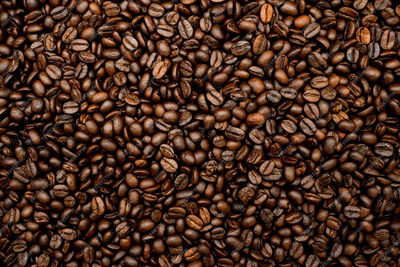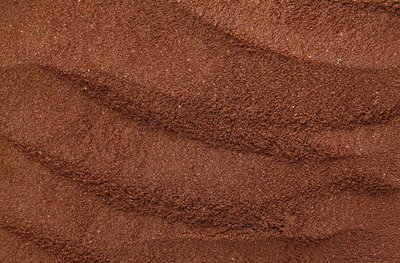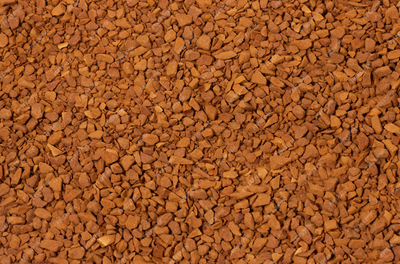Coffee is one of the most popular beverages worldwide, loved for its rich flavour and stimulating effects. However, there's ongoing debate about its impact on health, particularly concerning blood pressure. One of the most pressing questions we'll explore is Does coffee bring up blood pressure? This comprehensive guide aims to provide clear and helpful information on how coffee affects blood pressure, who should be cautious, and practical tips for coffee consumption. By the end of this guide, readers will learn:
- What blood pressure is and how it affects health.
- The components of coffee and their potential effects.
- How coffee can impact blood pressure in different individuals.
- Which groups of people should be more cautious with coffee intake.
- Practical tips for enjoying coffee responsibly.
- Alternatives to coffee for those concerned about blood pressure.
- Common myths and misconceptions about coffee and blood pressure.
- How different coffee preparation methods might influence its effects on blood pressure.
This guide aims to equip you with the knowledge to make informed choices about coffee consumption and understand its potential impact on your health.
Understanding Blood Pressure
What is Blood Pressure?
Many readers ask, does coffee raise blood pressure? This section aims to answer that and more."Blood pressure is the force that your blood exerts on the walls of your blood vessels as it moves through your body. Imagine your blood vessels are like pipes and your blood is the water flowing through them. The pressure of the water against the pipes is similar to how blood pressure works in your body.
Blood pressure is measured in millimetres of mercury (mmHg) and is recorded as two numbers:
- Systolic Pressure: This is the higher number and measures the pressure when your heart beats and pumps blood into the arteries.
- Diastolic Pressure: This is the lower number and measures the pressure when your heart is at rest between beats.
For example, if your blood pressure reading is 120/80 mmHg, it means your systolic pressure is 120 and your diastolic pressure is 80. Understanding these numbers can help you keep track of your heart health and identify any potential issues early on.So you must have got your answer for does coffee raise bp?
Why is Blood Pressure Important?
Maintaining healthy blood pressure is crucial for heart health and overall well-being. Here's why:
- Heart Health: Your heart is a muscle that pumps blood throughout your body. If your blood pressure is too high, it means your heart has to work harder to pump blood. Over time, this extra strain can weaken your heart, making it less efficient and more prone to problems.
- Prevention of Serious Health Issues: High blood pressure, also known as hypertension, is a major risk factor for several serious health conditions:
- Heart Disease: When your heart is overworked due to high blood pressure, it can lead to heart disease. This includes conditions like heart attacks and heart failure.
- Stroke: High blood pressure can damage your blood vessels, making them more likely to clog or burst. This can lead to a stroke, which is when part of your brain doesn’t get enough blood.
- Kidney Problems: Your kidneys filter waste from your blood. High blood pressure can damage the blood vessels in your kidneys, affecting their ability to function properly. This can lead to kidney disease or even kidney failure.
By keeping your blood pressure within a healthy range, you can reduce the risk of these serious health issues and maintain better overall health. Regular check-ups and a healthy lifestyle can help you manage your blood pressure effectively.

Coffee and Its Components
Exploring the relationship between caffeine and blood pressure is essential for anyone looking to maintain heart health. Coffee is more than just a beloved morning ritual it's a complex beverage with various ingredients that can have different effects on your body.The effects of caffeine on the body are varied and can influence blood pressure significantly. To understand how coffee impacts blood pressure, it's important to know what’s in your cup of coffee.
What’s in Your Coffee?
- Caffeine: This is the most well-known ingredient in coffee and the primary one that affects blood pressure. Caffeine is a natural stimulant that can make you feel more alert and awake. It works by blocking adenosine, a chemical in your brain that makes you feel tired. This can lead to a temporary increase in blood pressure as your heart beats faster and your blood vessels constrict.
- Antioxidants: Coffee is rich in antioxidants, such as chlorogenic acid and polyphenols. These compounds help protect your cells from damage caused by free radicals, unstable molecules that can harm your body. Antioxidants can reduce inflammation and lower the risk of chronic diseases, including heart disease and diabetes.
- Other Compounds: Coffee contains various other compounds that contribute to its overall effects:
- Vitamins and Minerals: Coffee provides small amounts of essential nutrients like vitamins B2 (riboflavin), B3 (niacin), B5 (pantothenic acid), and manganese. These nutrients support various bodily functions, including energy production and metabolism.
- Diterpenes: Compounds like cafestol and kahweol, found in unfiltered coffee, can raise cholesterol levels. These diterpenes are mostly removed by paper filters, so their levels vary depending on how coffee is prepared.
- Melanoidins: Formed during the roasting process, melanoidins have antioxidant properties and may contribute to the health benefits of coffee.
By understanding these components, you can better appreciate how coffee interacts with your body and how it might affect your blood pressure.
How Does Caffeine Work?
Many wonder how long does caffeine take to kick in and start affecting the body.Similarly, how long does coffee take to kick in can depend on several factors, including personal metabolism.Caffeine is the primary component in coffee that affects your body, particularly your blood pressure. Here's how it works:
- Stimulation of the Central Nervous System: Caffeine is a natural stimulant that affects your brain and spinal cord. It works by blocking the action of adenosine, a neurotransmitter that promotes relaxation and sleepiness. By doing this, caffeine increases the release of other neurotransmitters like dopamine and norepinephrine, which enhance alertness and concentration. This is why drinking coffee can make you feel more awake and focused.
- Temporary Increase in Blood Pressure: Caffeine can cause a short-term rise in blood pressure. It does this in two main ways:
- Constriction of Blood Vessels: Caffeine causes the blood vessels to constrict, or become narrower. This happens because caffeine blocks adenosine, which usually helps to keep blood vessels dilated. When the blood vessels constrict, it increases the pressure of the blood flowing through them, leading to higher blood pressure.
- Increased Heart Rate: Caffeine stimulates the heart to beat faster. A faster heart rate means that more blood is pumped through the blood vessels in a shorter amount of time, which can also contribute to a temporary increase in blood pressure.
These effects of caffeine are usually short-lived, and blood pressure generally returns to normal after a few hours. However, the response to caffeine can vary from person to person. Some people may experience a more significant increase in blood pressure than others, depending on their sensitivity to caffeine and their usual intake.
|
Effect |
Action |
Result |
Scientific Example |
|
Stimulation of the Central Nervous System |
Caffeine blocks adenosine receptors in the brain. |
Increased alertness and wakefulness. |
Adenosine usually promotes relaxation and sleepiness. When caffeine blocks adenosine receptors, it prevents this relaxing effect, making you feel more awake and alert. Example: Drinking a cup of coffee in the morning helps you feel more alert and ready to start your day. |
|
Temporary Increase in Blood Pressure |
Constriction of Blood Vessels
Increased Heart Rate
|
|
|
Here are the diagrams to help illustrate how caffeine works:
1. Caffeine Blocking Adenosine Receptors:
- This diagram shows caffeine molecules (red) blocking adenosine receptors (blue) in the brain, leading to increased alertness.
2. Caffeine Constricting Blood Vessels:
- This diagram illustrates the difference between a normal blood vessel and a constricted blood vessel. Caffeine causes the blood vessels to narrow, which increases blood pressure.

Impact of Coffee on Blood Pressure
One common query is, does coffee bring up blood pressure temporarily or over the long term? Scientific studies explore whether coffee can raise bp and under what circumstances.Coffee is a popular beverage enjoyed by millions of people worldwide. Understanding does coffee affect blood pressure is vital for those monitoring their cardiovascular health While it has many benefits, it's important to understand how it can affect your blood pressure. In this section, we address whether does coffee bring up blood pressure in the short term.Further into our discussion, we'll continue to examine how does coffee bring up blood pressure and under what conditions.
Short-Term Effects
- Temporary Spike in Blood Pressure:
- Explanation: Drinking coffee can cause a temporary increase in blood pressure, usually lasting for a few hours.
- How It Happens:
- Caffeine and Blood Vessels: Caffeine blocks the action of adenosine, a neurotransmitter that helps to relax blood vessels. When adenosine is blocked, the blood vessels constrict (become narrower). This constriction increases the pressure needed to push blood through the vessels, leading to a rise in blood pressure.
- Release of Adrenaline: Caffeine also stimulates the adrenal glands to release adrenaline (epinephrine). Adrenaline is a hormone that increases heart rate and tightens blood vessels, both of which contribute to higher blood pressure.
- Scientific Example: Imagine your blood vessels are like garden hoses. Normally, adenosine helps keep the hoses wide open, allowing blood to flow easily. When caffeine blocks adenosine, it’s like squeezing the hoses, which makes the blood flow with greater force, thus increasing blood pressure.
- Individual Sensitivity to Caffeine:
- Explanation: The effect of coffee on blood pressure can vary from person to person. Some people are more sensitive to caffeine and may experience a more significant increase in blood pressure. Caffeine sensitivity symptoms can include jitteriness, rapid heartbeat, and elevated blood pressure.For those with caffeine intolerance, symptoms can be more severe, impacting their daily life
- How It Happens:
- Genetic Factors: Some people have genetic variations that make them metabolise caffeine more slowly. This means caffeine stays in their system longer, prolonging its effects on blood pressure.
- Regular Consumption: People who do not regularly consume caffeine might have a stronger reaction because their bodies are not accustomed to it. In contrast, regular coffee drinkers might develop a tolerance, meaning they need more caffeine to achieve the same effect.
- Scientific Example: Think of caffeine sensitivity like alcohol tolerance. Some people can drink a small amount of alcohol and feel its effects strongly because their bodies don’t process it quickly. Similarly, if someone’s body processes caffeine slowly, they might experience a stronger and longer-lasting increase in blood pressure after drinking coffee.
Understanding these short-term effects can help you make informed decisions about your coffee consumption, especially if you are concerned about your blood pressure.
Long-Term Effects
While drinking coffee can cause a temporary spike in blood pressure, the long-term effects can be quite different. Here’s a detailed explanation of the long-term effects of coffee on blood pressure.
- Development of Tolerance to Caffeine:
- Explanation: Regular coffee drinkers may develop a tolerance to caffeine over time, which can reduce its impact on blood pressure.
- How It Happens:
- Adaptation: When you regularly consume caffeine, your body gradually adapts to its presence. This adaptation can occur through changes in the number and sensitivity of adenosine receptors. With fewer receptors or less sensitive ones, caffeine has a diminished effect on blocking adenosine, leading to less constriction of blood vessels and, consequently, a smaller increase in blood pressure.
- Desensitisation: Over time, your body may also become less responsive to the adrenaline-releasing effects of caffeine. This means that even though caffeine still triggers adrenaline release, the overall impact on your heart rate and blood pressure is reduced.
- Scientific Example: Consider how people who live in a noisy environment, like near a train station, eventually become less bothered by the noise. Similarly, regular coffee drinkers’ bodies become less responsive to the stimulating effects of caffeine, including its impact on blood pressure.
- Habitual Coffee Consumption and Blood Pressure:
- Explanation: Some studies suggest that habitual coffee consumption may not lead to long-term increases in blood pressure.
- How It Happens:
- Study Findings: Research indicates that while caffeine causes a short-term rise in blood pressure, this effect may diminish with regular consumption. Long-term studies have shown that in habitual coffee drinkers, the average blood pressure is not significantly higher than in non-coffee drinkers.
- Possible Protective Effects: There is some evidence that coffee contains beneficial compounds, like antioxidants, which might help counteract the negative effects of caffeine. These antioxidants can improve endothelial function (the health of the blood vessel lining) and reduce inflammation, potentially contributing to better overall cardiovascular health.
- Scientific Example: Think of it like exercising. Initially, starting a new workout routine can cause sore muscles and fatigue. However, over time, your body gets stronger and adapts to the exercise, reducing these initial negative effects. Similarly, regular coffee consumption might initially raise blood pressure, but the body adapts, and the long-term impact may not be significant.
In summary, while coffee can cause a temporary increase in blood pressure, regular consumption may lead to tolerance, reducing this effect over time. Additionally, habitual coffee drinking is not necessarily linked to long-term increases in blood pressure, and it might even have some protective cardiovascular benefits.
Scientific Studies on the Long-Term Effects of Coffee on Blood Pressure
Scientific studies explore whether coffee can raise bp and under what circumstances. It's a common myth that does coffee bring up blood pressure permanently; however, studies show that the effect is typically temporary.
Research Findings from Oxford Academic
- Mixed Results:
- Studies Indicating Slight Increase:
- Some studies show that regular coffee consumption can lead to a slight increase in blood pressure, particularly in people who are sensitive to caffeine. For example, a study published in the Annals of Behavioral Medicine found that caffeine can cause acute rises in systolic and diastolic blood pressure, especially in non-habitual coffee drinkers.
- Studies Showing Minimal or No Long-Term Effects:
- Other studies suggest that habitual coffee consumption does not significantly affect long-term blood pressure. Research published in the Journal of Hypertension found no significant association between habitual coffee intake and increased blood pressure in most individuals. The study highlighted that regular consumers might develop a tolerance, reducing caffeine's impact on blood pressure over time.
- Example Study:
- A comprehensive review in the European Heart Journal analyzed data from over 6,000 subjects and concluded that there is no consistent evidence linking long-term coffee consumption to increased hypertension risk. This study supports the idea that regular coffee drinkers develop a tolerance to caffeine's hypertensive effects.

Who Should Be Cautious?
Certain individuals need to be more careful with their coffee consumption due to its effects on blood pressure.While discussing whether is caffeine bad for you, it's crucial to consider its dose-dependent effects on health.Understanding the side effects of coffee withdrawal is crucial for anyone considering reducing their caffeine intake.
Individuals with Hypertension
People with high blood pressure should monitor their coffee intake and consult with healthcare providers.
Justification:
- Increased Sensitivity: Individuals with hypertension may experience more pronounced blood pressure spikes after consuming caffeine. This happens because their blood vessels are more responsive to the constrictive effects of caffeine. When caffeine blocks adenosine receptors, blood vessels constrict more significantly in hypertensive individuals, causing a more substantial increase in blood pressure.
- Potential Risks: For those with pre-existing high blood pressure, the temporary rise caused by caffeine can lead to complications such as an increased risk of heart attack or stroke. The acute rise in blood pressure places additional strain on the cardiovascular system, potentially leading to serious health issues.
Caffeine Sensitivity
Some individuals are more sensitive to caffeine and may experience significant blood pressure changes.
Justification:
- Genetic Factors: Genetic variations can slow down the metabolism of caffeine, causing it to remain in the system longer. This prolonged presence increases the duration and intensity of its effects, leading to more pronounced blood pressure spikes.
- Nervous System Response: Sensitive individuals often have a more reactive central nervous system. When caffeine blocks adenosine receptors, their bodies may release more adrenaline, which significantly increases heart rate and blood pressure.
- Lower Baseline Tolerance: People who do not regularly consume caffeine tend to have a lower tolerance. Their bodies are not accustomed to the stimulant effects, making them more susceptible to significant blood pressure changes when they do consume caffeine.
- Hormonal Influences: Some individuals may have hormonal variations that make their cardiovascular system more responsive to the effects of caffeine. This can enhance the blood vessel constriction and heart rate increase, leading to higher blood pressure spikes.
Symptoms of Caffeine Sensitivity:
|
Symptom |
Description |
|
Rapid Heartbeat |
An unusually fast or irregular heartbeat after consuming caffeine. |
|
Jitters or Nervousness |
Feeling excessively jittery or anxious even with a small amount of caffeine. |
|
Insomnia |
Difficulty falling asleep or staying asleep after consuming caffeine, especially later in the day. |
|
Headaches |
Experiencing headaches shortly after caffeine intake. |
|
Elevated Blood Pressure |
Notable increase in blood pressure readings after consuming caffeine. |
- Caffeine Consumption: The process starts when an individual consumes caffeine, typically through coffee, tea, or other caffeinated beverages.
- Slow Metabolism (Liver): In sensitive individuals, the liver metabolizes caffeine more slowly due to genetic factors. This means caffeine stays in their system longer.
- Prolonged Caffeine Presence in Blood: Because of the slow metabolism, caffeine remains in the bloodstream for an extended period.
- Increased Adenosine Blockage: Caffeine blocks adenosine receptors in the brain. In sensitive individuals, this blockage is more pronounced, preventing adenosine from causing relaxation and making them feel more alert.
- Greater Adrenaline Release: The blockage of adenosine receptors leads to increased release of adrenaline. Adrenaline is a hormone that increases heart rate and blood pressure.
- Symptoms of Sensitivity:
- Rapid Heartbeat: The increased adrenaline causes the heart to beat faster.
- Elevated Blood Pressure: The heart pumps more blood with each beat, raising blood pressure.
- Jitters/Anxiety: The stimulation of the central nervous system can cause feelings of jitteriness or anxiety.
Pregnant Women
Pregnant women should limit caffeine intake due to potential health risks for both mother and baby.
Justification:
- Increased Sensitivity:
- Explanation: During pregnancy, the body undergoes various hormonal changes that can make it more sensitive to caffeine. This increased sensitivity can lead to more pronounced effects on blood pressure.
- How It Works: Caffeine crosses the placenta and reaches the fetus. Since the fetus's metabolism is not fully developed, it cannot metabolize caffeine efficiently. This can lead to higher levels of caffeine in the fetal bloodstream, which may affect fetal development and increase the risk of pregnancy complications.
- Potential Health Risks for the Mother:
- Explanation: High caffeine intake can exacerbate pregnancy-related hypertension or preeclampsia, a condition characterized by high blood pressure and damage to other organs, often the kidneys.
- How It Works: Caffeine can increase heart rate and blood pressure, putting additional strain on the cardiovascular system. For pregnant women already experiencing high blood pressure or preeclampsia, this added strain can be particularly dangerous, increasing the risk of severe complications.
- Potential Health Risks for the Baby:
- Explanation: High levels of caffeine intake during pregnancy have been linked to negative outcomes for the baby, including low birth weight, preterm birth, and developmental issues.
- How It Works: Caffeine can restrict blood flow to the placenta, reducing the amount of oxygen and nutrients the baby receives. This can lead to slower growth and development, increasing the risk of low birth weight and other complications.
Symptoms to Watch for:
- Increased heart rate and palpitations
- Elevated blood pressure
- Jitters or anxiety
- Difficulty sleeping
By understanding these risks, pregnant women can make informed decisions about their caffeine intake to protect their health and the health of their baby. It is generally recommended that pregnant women limit their caffeine intake to 200 milligrams per day, roughly equivalent to one 12-ounce cup of coffee. However, consulting with a healthcare provider for personalized advice is always the best course of action.

Practical Tips for Coffee Lovers
If you're looking for alternatives, here's what to drink to lower blood pressure immediately. Choosing the right morning drink for high blood pressure is crucial for starting the day right. Coffee is a beloved beverage, and enjoying it responsibly can help you maintain your health while still indulging in your favorite drink. Here are some practical tips for coffee lovers:
Moderation is Key
- Enjoy coffee in moderation: The general recommendation is to limit coffee intake to up to 3-4 cups per day. This amount can provide the benefits of caffeine without significantly impacting blood pressure for most people.
Monitor Your Response
- Pay attention to your body’s reaction: Keep an eye on how your body responds to coffee. If you notice any significant changes in blood pressure, heart rate, or experience symptoms like jitters or anxiety, consider adjusting your intake.
- How to Monitor: You can use a blood pressure monitor to check your levels before and after drinking coffee. Note any patterns or changes and discuss them with your healthcare provider if needed.
Opt for Decaf
- Consider decaffeinated coffee: If you're concerned about caffeine's effects on your blood pressure, try switching to Presto Coffee Decaf Filter or Half Decaf. Decaffeinated coffee allows you to enjoy the taste of coffee without the stimulating effects of caffeine.
Healthy Lifestyle Choices
- Balance coffee with a healthy lifestyle: Combine your coffee consumption with a balanced diet, regular exercise, and proper hydration. These healthy lifestyle choices can help mitigate any potential negative effects of caffeine on your blood pressure.
- Diet: Include plenty of fruits, vegetables, whole grains, and lean proteins in your diet.
- Exercise: Aim for at least 150 minutes of moderate aerobic activity or 75 minutes of vigorous activity each week, along with muscle-strengthening exercises on two or more days a week.
- Hydration: Drink plenty of water throughout the day to stay hydrated, especially if you consume caffeine, which can have a diuretic effect.
By following these practical tips, you can enjoy your coffee while keeping your health in check. Remember that everyone’s tolerance to caffeine is different, so it’s important to find what works best for you and make adjustments as needed.
Myths and Misconceptions about Coffee and Blood Pressure
Addressing the myths surrounding coffee and blood pressure helps clarify what you can safely enjoy.There are many myths and misconceptions about the relationship between coffee and blood pressure. Here, we address some of the most common ones:
Myth: Coffee Causes Hypertension
- Clarification: Occasional coffee consumption is unlikely to cause chronic hypertension. While drinking coffee can cause a temporary increase in blood pressure, this effect is usually short-lived and diminishes over time, especially in regular coffee drinkers who develop a tolerance to caffeine.
- Short-Term vs. Long-Term Effects: It’s important to distinguish between short-term spikes in blood pressure and long-term health effects.
- Short-Term: When you drink coffee, caffeine blocks adenosine receptors, causing temporary blood vessel constriction and a subsequent rise in blood pressure. This effect typically lasts for a few hours.
- Long-Term: Long-term studies have shown that habitual coffee consumption does not lead to sustained increases in blood pressure or chronic hypertension. In fact, some research suggests that regular coffee drinkers may have a lower risk of certain cardiovascular diseases compared to non-drinkers.
Myth: Decaf Coffee is Completely Caffeine-Free
- Clarification: Decaffeinated coffee still contains small amounts of caffeine. While it has significantly less caffeine than regular coffee, it is not entirely caffeine-free.
- Effect on Sensitive Individuals: For most people, the small amount of caffeine in decaf coffee is negligible and unlikely to cause any noticeable effects. However, individuals who are extremely sensitive to caffeine might still experience mild effects. It’s important for such individuals to monitor their intake and choose their coffee options accordingly.
By understanding these myths and the actual effects of coffee on blood pressure, you can make more informed decisions about your coffee consumption. Here are the key points summarized:
|
Myth |
Clarification |
Details |
|
Coffee Causes Hypertension |
Occasional coffee consumption is unlikely to cause chronic hypertension. |
Short-term spikes in blood pressure are temporary and do not lead to long-term hypertension. |
|
Decaf Coffee is Completely Caffeine-Free |
Decaf coffee still contains small amounts of caffeine. |
Extremely sensitive individuals might still be affected by the small caffeine content in decaf. |

Coffee Preparation Methods and Their Effects
The way you prepare your coffee can significantly impact its caffeine content and, consequently, its effect on blood pressure. Additionally, additives commonly used in coffee can also influence your health.
Brewing Techniques
- Different Brewing Methods:
- Espresso: This method involves forcing a small amount of nearly boiling water through finely-ground coffee beans. Espresso is known for its strong flavour and high caffeine concentration. Although a single espresso shot contains less caffeine than a cup of drip coffee, its smaller volume means you might consume more servings.
- French Press: This method involves steeping coarsely-ground coffee beans in hot water for several minutes before pressing the grounds out. French press coffee typically contains more caffeine than drip coffee because of the longer brewing time and full immersion of the grounds.
- Drip Coffee: This common method involves hot water dripping through a filter containing Ground coffee. Drip coffee generally has a moderate caffeine content, depending on the coffee-to-water ratio and brewing time.
- Cold Brew: This method involves steeping coarsely-ground coffee beans in cold water for an extended period (usually 12-24 hours). Cold brew tends to have a higher caffeine content due to the long steeping time, although it’s often diluted with water or milk before consumption.
- Impact on Caffeine Content and Blood Pressure:
- Higher Caffeine Methods: Methods like espresso and French press, which involve either high pressure or extended steeping times, typically result in higher caffeine content. Higher caffeine intake can lead to temporary spikes in blood pressure, especially in sensitive individuals.
- Lower Caffeine Methods: Using a drip coffee maker or opting for cold brew that is heavily diluted can result in lower caffeine content. Additionally, using fewer coffee grounds or brewing for a shorter period can help reduce caffeine intake.
- Tips for Lower Caffeine Content:
- Use a drip coffee maker with a medium coffee-to-water ratio.
- Brew for a shorter time.
- Opt for decaffeinated coffee or mix regular and decaf beans.
Additives and Their Impact
- Common Additives:
- Sugar: Adding sugar to coffee can lead to an increase in calorie intake and can contribute to weight gain and elevated blood pressure over time. High sugar intake is associated with increased risk of metabolic syndrome and heart disease.
- Cream and flavoured Syrups: These additives can add significant amounts of saturated fat and sugar to your coffee, potentially leading to higher cholesterol levels, weight gain, and increased blood pressure.
- Milk and Plant-Based Milks: Regular milk adds protein and calcium but also contains saturated fat. Plant-based milks like almond, soy, or oat milk are often lower in calories and saturated fat, making them a healthier alternative.
- Healthier Alternatives:
- Natural Sweeteners: Use honey, stevia, or monk fruit as natural sweeteners that have a lower impact on blood glucose levels compared to refined sugar.
- Plant-Based Milks: Almond milk, soy milk, and oat milk are good alternatives to regular cream or flavoured syrups. They provide a creamy texture with fewer calories and less saturated fat.
- Spices: Add spices like cinnamon, nutmeg, or vanilla extract to enhance flavour without adding calories or sugar.
By understanding the effects of different brewing techniques and additives, you can make informed choices about your coffee consumption to better manage your blood pressure and overall health.
Frequently Asked Questions
1. How much coffee is safe to drink each day if I'm worried about my blood pressure?
It’s generally safe to drink up to 3-4 cups of coffee per day. However, if you’re concerned about your blood pressure, it’s best to monitor how your body reacts and consult with your healthcare provider for personalized advice.
2. Can I drink coffee if I already have high blood pressure?
Yes, you can still enjoy coffee if you have high blood pressure, but moderation is key. It’s important to monitor your blood pressure and talk to your healthcare provider to ensure your coffee consumption is within safe limits.
3. Does drinking coffee affect my blood pressure immediately?
Caffeine can cause a temporary spike in blood pressure that typically lasts a few hours. If you notice significant increases, you might want to adjust your coffee intake or choose decaffeinated options.
4. Are there any signs that indicate I should reduce my coffee intake?
If you experience symptoms like rapid heartbeat, jitteriness, anxiety, or headaches after drinking coffee, it might be a sign that you need to reduce your intake. Keeping a diary of your symptoms can help identify if coffee is the cause.
5. What is the difference between regular and decaffeinated coffee in terms of caffeine content?
Regular coffee contains caffeine, while decaffeinated coffee has most of the caffeine removed. However, decaf coffee still contains small amounts of caffeine, which might affect very sensitive individuals.
6. Can switching to decaf coffee help lower my blood pressure?
Yes, switching to decaf coffee can help if you are sensitive to caffeine or if you are experiencing significant increases in blood pressure after drinking regular coffee. Decaf coffee provides the same taste with much less caffeine.
7. How can I make my coffee healthier if I’m concerned about my blood pressure?
You can make your coffee healthier by using natural sweeteners like honey or stevia instead of sugar, opting for plant-based milks instead of cream, and avoiding high-calorie flavoured syrups. Also, consider drinking coffee in moderation and balancing it with a healthy diet and lifestyle.






 Log in
Log in
